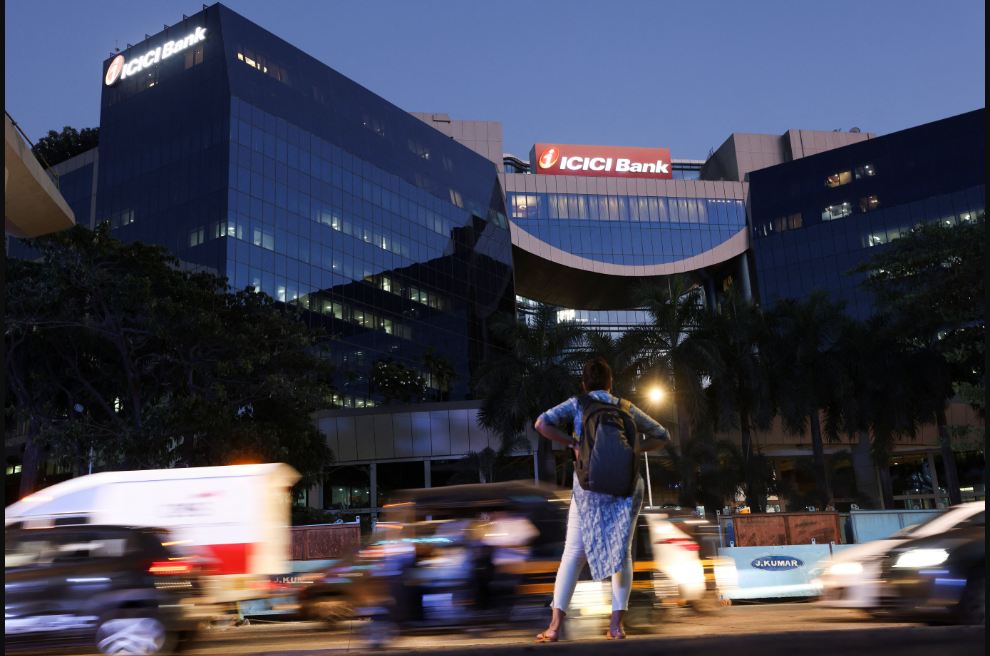Top private Indian banks report strong Q2 profit rise as loan growth continues
Mumbai (Reuters) – Two of India’s top private banks – ICICI Bank (ICBK.NS) and Kotak Mahindra Bank (KTKM.NS) – reported a sharp increase in net profits for the July-September quarter, as strong growth in the economy helped drive consumer loans.
ICICI Bank, the country’s second largest private lender, posted a 35.8% rise in standalone net profit year-on-year, significantly beating analysts’ forecast with a record 102.61 billion rupees ($1.23 billion) in the second financial quarter.
The bank’s net interest income – the difference between interest earned and paid – rose nearly 24% to 183.08 billion rupees, while asset quality also improved.
A 19% on-year growth in the bank’s loan portfolio helped offset a drop in net interest margin (NIM) from the previous quarter, the bank’s executive director said at a post-earnings media call, adding that the drop in NIM should moderate in the coming quarters.
Kotak Mahindra Bank (KTKM.NS), the fourth largest Indian bank by market capitalisation, reported a 21% rise in loans for the second quarter, which contributed to a 24% increase in standalone net profit.
Indian banks have consistently clocked double-digit loan growth over the past few months due to rising demand for credit, amid increased consumer spending.
The upcoming festive season is expected to further boost customer spending, helping sustain the demand for retail loans.
However, the banking regulator has been concerned about a sharp rise in unsecured loans – mostly personal loans and credit cards.
While these loans carry a higher risk, they are also a big contributor to profit margins as they entail higher interest rates.
Delinquencies in the unsecured lending portfolio are increasing, but that is not a cause of concern as yet, Dipak Gupta, managing director and CEO of Kotak Mahindra Bank said on Saturday.
The situation was similar at a third, but mid-sized private lender, Yes Bank (YESB.NS), which reported a 47% increase in net profit for the second quarter, also helped by an increase in loan demand.
“Although concerns (in the unsecured book) remain, they are not currently significant,” said the bank’s MD Prashant Kumar.



